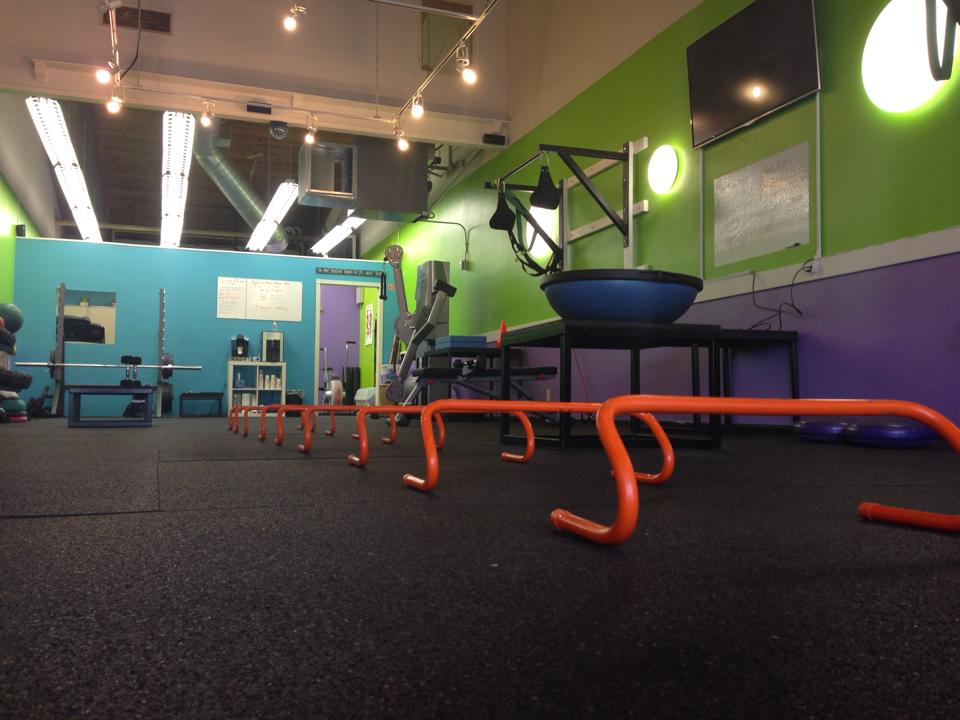

However, exercising in groups sometimes alleviates the anxiety that stems from not knowing what to do at the gym, as you can follow the instructor or fellow exercisers. If you have social anxiety, group fitness classes might not be an ideal solution. After you feel comfortable working out with your buddy, venture out on your own. Plus, doing so takes part of the unknown out of the equation. Hitting the gym with a friend or family member who knows their way around can provide comfort, support, and guidance. And then, after working on that program for a month or two, perhaps schedule another session to progress your routine to the next level. If you would like a program to follow, mention that.
#Conquer fitness studio how to#
Working with a personal trainer for even just one session can help you learn what exercises to do, how to perform them, how to set up the equipment, and how to program your workouts.īe specific about your needs if you only want to complete one session to familiarize yourself with the exercises and equipment, that’s a completely valid goal. Pick a small goal that you’re comfortable with - spend 10 or 15 minutes on a cardio machine or just stretch - and call it a workout. Start slowlyĭon’t feel like you have to go all in during your first visit to the gym. Then, go in for a tour, familiarizing yourself with the building and the staff. Start online by researching the facility, its amenities, and class offerings. The root of some anxiety is fear of the unknown, so gaining as much information as you can ahead of time will help you feel more confident ( 5). The study suggests that a women’s weightlifting class or women’s-only area of a gym could give them the motivation to move forward ( 4).Ī handful of strategies can help you overcome gym anxiety and get in a great workout. Yet, researchers also found that feelings of judgment and intimidation, as well as a lack of knowledge about how to use the equipment, also contributed. In part, participants cited time and effort as barriers. One study including 116 college-age women found that a good portion of them was aware of the benefits of resistance training but still didn’t partake in the recommended amount. Utilizing the weight room can be intimidating as a woman, even if you’re not a gym newbie. You’re a woman wanting to use the typically male-dominated weight room Post-COVID anxiety is a real thing, and the idea of returning to life as we knew it before the pandemic can evoke feelings of fear and uncertainty ( 3). The gym is really crowdedĮspecially given the pandemic, crowded indoor spaces can make many people uneasy. Doing this in a public locker room can make you uncomfortable. If you come to the gym from work or plan to go somewhere else afterward, you may have to change clothes before or after your workout. Maybe you really want to use the leg press machine, but you can’t figure out how to adjust it.


You’re having trouble using the equipment Navigating the new layout, finding the locker room and restroom, locating the equipment you want to use, and getting into a new routine can provoke anxiety. Maybe you have been working out at one gym for a while but recently switched locations. Will everyone else be fitter than me? Will people judge me? What should I do and how do I start? Referred to as situational anxiety, these thoughts and feelings are provoked by unfamiliar situations ( 2). If you’ve never worked out at a gym before, or it has been a long time, you may feel intimidated. Like any type of anxiety, gym anxiety can be complex and individualized, but here are some common scenarios that might trigger it: You’re a beginner Identifying triggers and learning coping mechanisms for gym anxiety can help you step foot in the gym with confidence, conquering those negative feelings and reaping the benefits of exercise. These feelings, which the APA defines as “anticipation of a future concern,” can manifest as muscle tension and avoidance ( 1).Įxercise not only benefits your physical health but also your mental health. If you’ve ever felt this way, know you’re not alone.Īccording to the American Psychiatric Association (APA), anxiety disorders are the most common mental health disorders and affect almost 30% of adults at some point. Or maybe you feel uneasy in the locker room dressing next to strangers. Maybe you’re concerned that it will be too crowded, too germy, or the machines you normally use will be taken. Maybe you have no idea what to do or how to use the equipment, and you feel like people will judge you. Maybe you’re afraid of what other people will think of your appearance or abilities. At one point or another, you may have felt anxious, intimidated, or embarrassed about working out at the gym.


 0 kommentar(er)
0 kommentar(er)
